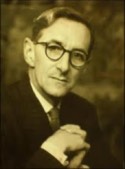Clement-Jones family - Person Sheet
Clement-Jones family - Person Sheet
Birth1906
Death1990
EducationRugby and Balliol College Oxford
FatherRt Hon Sir Francis Dyke ACLAND PC JP MP 14th Bart , 805 (1874-1939)
MotherEleanor Margaret CROPPER , 749 (1878-1933)
Spouses
Notes for Sir Richard Thomas Dyke ACLAND 15th Bart
11th or 15th Bt. Barrister Inner Temple 1939; Lt 96th (Roy Devon Yeo) Field Bde RA; Pncpl Lecturer St Luke's College Exeter; MP Barnstaple 1935–45 and Gravesend 1947–55, Assist Lib Whip 1935–37, 2nd Ch Estates Commr 1950–51, Ldr Cwlth Parly Party 1944–45;
Sir Richard Thomas Dyke Acland, (26 November 1906 – 24 November 1990) was one of the founding members of the British Common Wealth Party. He had previously been a Liberal Member of Parliament (MP) and joined the Labour Party in 1945.[1] He was one of the founders of the Campaign for Nuclear Disarmament (CND).
[edit]Career
Acland was the son of Sir Francis Acland, a Liberal Member of Parliament (MP). Born in Broadclyst, Devon, he was educated at Rugby School and Balliol College, Oxford and became a barrister and architect. He served as a lieutenant in the Royal North Devon Yeomanry.
Acland stood for Parliament without success for Torquay at the 1929 general election. He was elected Liberal MP for Barnstaple at the 1935 election, having first contested the seat in the 1931 general election. He was a junior whip for the Liberals. His politics changed course subsequently, as seen in the various pamphlets he wrote, and in 1942 he broke from the Liberals to found the socialist Common Wealth Party with J. B. Priestley, opposing the coalition between the major parties. He advocated public land ownership and donated his West Country estate at Killerton, Devon to the National Trust.
The Common Wealth Party had shown signs during World War II of a breakthrough, especially in London and Merseyside, and winning three by-elections. However, the 1945 general election was a severe disappointment. Only one Member of Parliament (Ernest Millington) was elected and other figures had left or joined the Labour Party. Acland himself lost in Putney, where he came third.[2] He then joined Labour and was selected to fight the Gravesend seat following the expulsion of Labour MP Garry Allighan for making allegations of corruption. He won the Gravesend by-election in November 1947 with a majority of 1,675.[3]
Back in Parliament, Acland served as Second Church Estates Commissioner 1950–51. In 1955, he resigned from Labour in protest against the party's support for the Conservative government's nuclear defence policy, and lost Gravesend as an independent the same year, allowing the Conservatives to take the seat from the official Labour candidate, Victor Mishcon. He helped form the Campaign for Nuclear Disarmament (CND) in 1957 and was senior lecturer in education at St. Luke's College of Education, Exeter.
Acland was married to Anne Stella Alford, an architect, with whom he had four sons. He succeeded his father as baronet in 1939. He died in Exeter aged 83.
Sir Richard Thomas Dyke Acland, (26 November 1906 – 24 November 1990) was one of the founding members of the British Common Wealth Party. He had previously been a Liberal Member of Parliament (MP) and joined the Labour Party in 1945.[1] He was one of the founders of the Campaign for Nuclear Disarmament (CND).
[edit]Career
Acland was the son of Sir Francis Acland, a Liberal Member of Parliament (MP). Born in Broadclyst, Devon, he was educated at Rugby School and Balliol College, Oxford and became a barrister and architect. He served as a lieutenant in the Royal North Devon Yeomanry.
Acland stood for Parliament without success for Torquay at the 1929 general election. He was elected Liberal MP for Barnstaple at the 1935 election, having first contested the seat in the 1931 general election. He was a junior whip for the Liberals. His politics changed course subsequently, as seen in the various pamphlets he wrote, and in 1942 he broke from the Liberals to found the socialist Common Wealth Party with J. B. Priestley, opposing the coalition between the major parties. He advocated public land ownership and donated his West Country estate at Killerton, Devon to the National Trust.
The Common Wealth Party had shown signs during World War II of a breakthrough, especially in London and Merseyside, and winning three by-elections. However, the 1945 general election was a severe disappointment. Only one Member of Parliament (Ernest Millington) was elected and other figures had left or joined the Labour Party. Acland himself lost in Putney, where he came third.[2] He then joined Labour and was selected to fight the Gravesend seat following the expulsion of Labour MP Garry Allighan for making allegations of corruption. He won the Gravesend by-election in November 1947 with a majority of 1,675.[3]
Back in Parliament, Acland served as Second Church Estates Commissioner 1950–51. In 1955, he resigned from Labour in protest against the party's support for the Conservative government's nuclear defence policy, and lost Gravesend as an independent the same year, allowing the Conservatives to take the seat from the official Labour candidate, Victor Mishcon. He helped form the Campaign for Nuclear Disarmament (CND) in 1957 and was senior lecturer in education at St. Luke's College of Education, Exeter.
Acland was married to Anne Stella Alford, an architect, with whom he had four sons. He succeeded his father as baronet in 1939. He died in Exeter aged 83.


